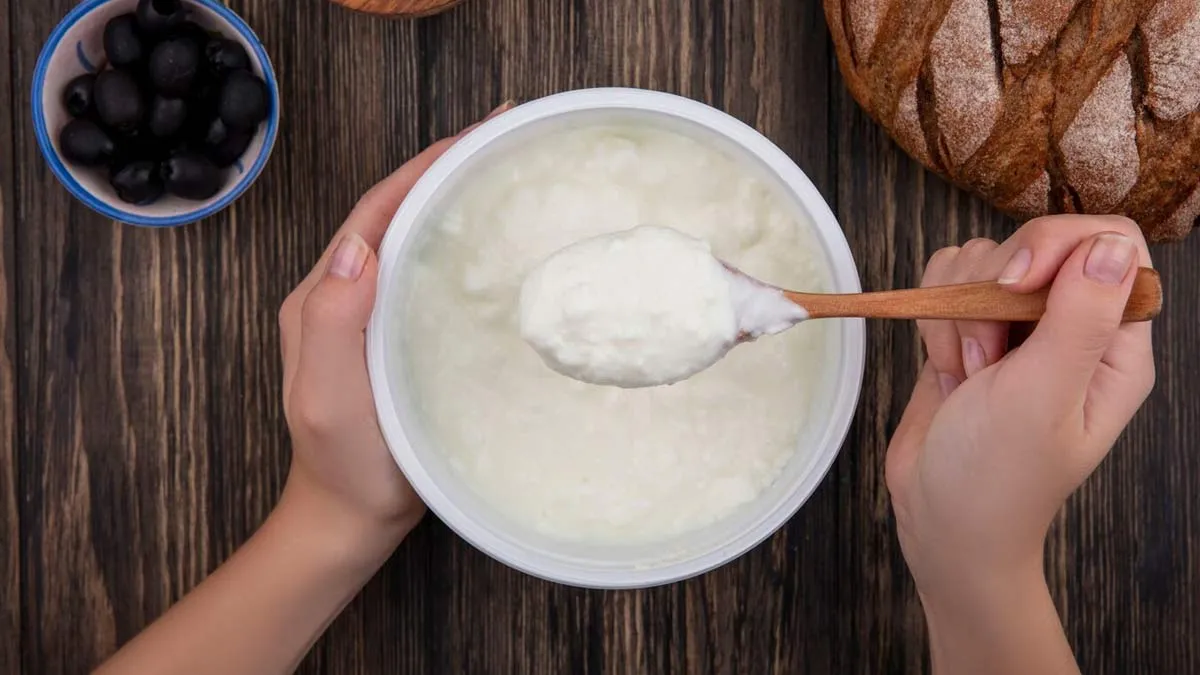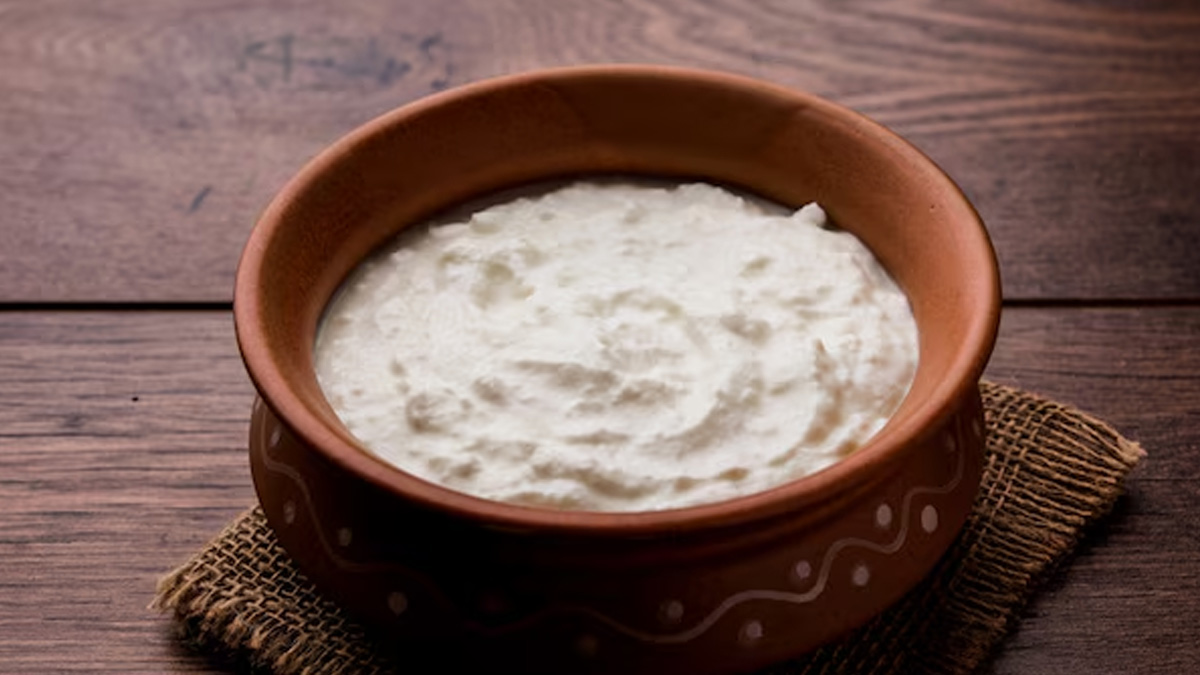
Curd is a natural probiotic that is said to improve gut flora. It is a fermented dairy product prepared by adding a culture (lactic acid bacteria) to milk, which causes the milk proteins to coagulate, thicken, and give a tangy flavour. But like any other food-related myth, some people believe that eating curd at night affects their health negatively. To understand whether or not there is any truth to it, the OnlyMyHealth team spoke to Dr Anjana Kalia, Ayurvedic Doctor and Nutritionist at Anjana Kalia’s Diet Clinic, New Delhi.
Table of Content:-
Also Read: Is Curd Good for the Skin? Know How It Benefits Your Diet and Beauty Routine
Does Eating Curd At Night Affect Health?

“Eating curd at night can affect some people’s digestion and may contribute to cold-related symptoms,” said Dr Kalia, adding that curd is naturally heated in nature, and when consumed at night or by individuals prone to respiratory issues, it may lead to mucus formation or a feeling of heaviness.
However, for others with strong digestion and no sensitivity, moderate consumption of fresh curd and buttermilk may not cause any issues. It largely depends on individual tolerance and body response.
For instance, in people with lactose intolerance, eating may lead to bloating, gas, or stomach discomfort. Though curd is slightly easier to digest than milk, it still contains lactose, which can be problematic for sensitive individuals. Similarly, those with sinus problems or a tendency for congestion should avoid curd at night, as it may worsen symptoms due to its cooling and mucus-forming properties, according to the doctor.
An article published in Ayushdhara highlights that curd is recommended in Ayurveda for managing digestive disorders such as diarrhoea (Atisara), malabsorption (Grahani), and haemorrhoids (Arsha). Rich in Lactobacillus, curd supports gut microbiota balance, enhances digestion, and improves taste. Citing a study on Vietnamese children, the article notes that regular consumption of fermented milk significantly reduced constipation. It also references research linking yoghurt intake to a decreased risk of colorectal cancer.
What Does Ayurveda Say?

According to Ayurveda, both climate and body constitution (or Prakriti) play an important role in how curd affects a person. “In hot climates or during summer, curd can be beneficial and refreshing. But in cold and humid climates, it may increase Kapha dosha, leading to congestion or colds,” explained Dr Kalia.
She added, “People with a Kapha constitution, who naturally have more mucus, heaviness, and coldness, should be cautious with curd, especially at night. Those with a Pitta or Vata constitution may tolerate curd better, but it still depends on the individual’s digestive strength.”
Who Should Avoid Curd At Night?
People with respiratory conditions like sinusitis, asthma, or frequent colds should avoid curd at night, as it can increase mucus production and worsen symptoms.
Additionally, those with weak digestion or acid reflux may also find it heavy and difficult to digest.
“Ayurveda advises against eating curd at night because it is considered heavy, cold, and mucus-forming, which can imbalance the body’s natural rhythms during sleep,” emphasised Dr Kalia.
Also Read: Are Packaged Yoghurt Good? Expert Shares Difference Between Homemade and Dairy Products
Alternatives To Curd For Nighttime Probiotics

There are gentler alternatives to curd for those seeking a probiotic boost at night. These include:
- Buttermilk (especially spiced or diluted)
- A small portion of plain, unsweetened yoghurt mixed with warm spices like black pepper or ginger
- Probiotic supplements
- Fermented foods like kefir or pickled vegetables (in small amounts)
Conclusion
Although curd has various probiotic and digestive advantages, its effect can be different depending on constitution, strength of digestion, and the time of day when it is consumed. Ayurveda recommends that one consume curd with care at night, particularly for respiratory problems or low digestion. Consuming lighter substitutes such as buttermilk or spiced yoghurt can prove to be a safer option for nighttime consumption of probiotics.
Also watch this video
How we keep this article up to date:
We work with experts and keep a close eye on the latest in health and wellness. Whenever there is a new research or helpful information, we update our articles with accurate and useful advice.
Current Version